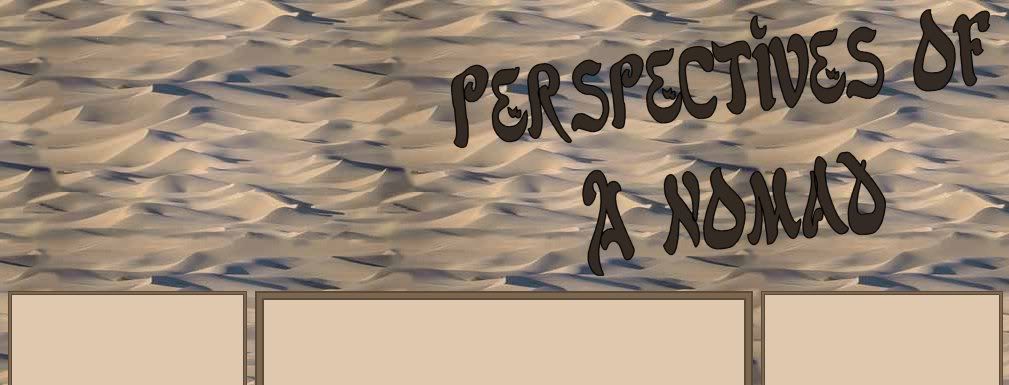

It should be done by giving Islam its proper name: Slavery and apartheid. Women are the slaves in the cult of Islam (submission = slavery). One peculiar thing about male supremacy or any form of slavery, is that it enslaves both parties. Muslim men should realise, that the emancipation of women also emancipates and frees men. This has been the lesson in the West. And so it has continued. Thus Muslim men should not be frightened in letting go - they will also be freeing themselves from the chains of islam. This inevitably leads us to ask, can we somehow re-define Islam, in particular for a Western audience, not as a religion but as a political ideology, and one whose tenets are sufficiently evil, so that it merits destruction, much as Nazism. This construct has to take place so that the Western populace sees it as justifiable to actually give the physical and moral support that is required for such a large undertaking. In passing it is worth noting the political difficulty that Bush and Blair are having in Iraq in sustaining political support for the war, once they had proclaimed that Islam is a RoP - they had conceded the moral ground.
Islam is institutionalised slavery, and the Jihad's main purpose is to garner slaves, both men and women, from the lands of the Free. Muslims, both men and women, then become the first slaves of Islam. Two points come to mind immediately. 1. The institution of slavery crushes the spirit of slaves. They were unable to think for themselves as a consequence. A striking feature of Islamic societies. 2. Runaway slaves used to be beaten, and oft executed, as a lesson to other would be runaway slaves. The same punishment is Islamically sanctioned for the Muslim apostate.
What we are witnessing today has little to do with Western democratic values and everything to do with a European media that reflects and plays to an increasingly xenophobic and Islamaphobic society. The cartoons seek to test and provoke; they are not ridiculing Osama bin Laden or Abu Musab al-Zarqawi but mocking Muslims’ most sacred symbols and values as they hide behind the façade of freedom of expression. The win-win for the media is that explosive headline events, reporting them or creating them, also boosts sales. The rush to reprint the Danish cartoons has been as much about profits as about the prophet of Islam. Respected European newspapers have acted more like tabloids.
When asked to describe what Western societies could do to improve relations with the Arab/Muslim world, by far the most frequent reply (47% in Iran, 46% in Saudi Arabia, 43% in Egypt, 41% in Turkey, etc.) was that they should demonstrate more understanding and respect for Islam, show less prejudice, and not denigrate what Islam stands for. At the same time, large numbers of Muslims cite the West’s technological success and its liberty and freedom of speech as what they most admire. When asked if they would include a provision for Freedom of Speech, defined as allowing all citizens to express their opinion on political, social and economic issues of the day if they were drafting a constitution for a new country, overwhelming majorities (94% in Egypt, 97% in Bangladesh, 98% in Lebanon etc.) in every country surveyed responded yes, they would.
At the end of the day, though, what may matter most to our servicemembers fighting this war is that—as I have said before—those among our countrymen who choose to agitate for a clash of civilizations are directly supporting the strategy of America’s adversaries in the information battlespace in which it will largely be decided. America’s forces, facing those adversaries to the front, are flanked on one side by the anti-war crowd among us, who want to see us lose what they see as an immoral war. On the other flank, we face a media enterprise that doesn’t especially care one way or the other as long as it sells copy—and bad news sells more than good, and what we don’t expect to see (like alleged American atrocities) sells more than what we do expect to see (like al-Qa’ida atrocities).
It is also not correct to claim that Sharia law is inherently incompatible with free expression, any more than is Mosaic law. What is incompatible with freedom of expression is the unification of church and state, regardless of the faith involved. In Muslim societies like Indonesia, where there is tacit, though incomplete separation, Sharia courts adjudicate matters of faith without interference with the general tolerance that Indonesia is known for. Nor does Islam equate to Sharia law: take Turkey, an Islamic nation with a fiercely secular system of government.
technorati tags: Conflict, West, Middle, East, Danger, Jew, Jewish, Christian, Judeo-Christian, Terror, Terrorist, Diaspora, imperialist, women, Muslim, Islam, Israel, Iran, Syria, Iraq, Islamophobia, democracy, moral, freedom, Ahmadinejad, al-Assad, Mohammed, Cartoon, Arafat, bin, Laden, al-Zawahiri, exploitation, exploit, Cuba, power, Cold, War, China, Russia, Slavery, Hussein, Islamaphobic, Sharia, Europe, al-Qaeda, United, States, Bush, Cheney, Canada
Posted by Scottage at 12:59 AM / | |
